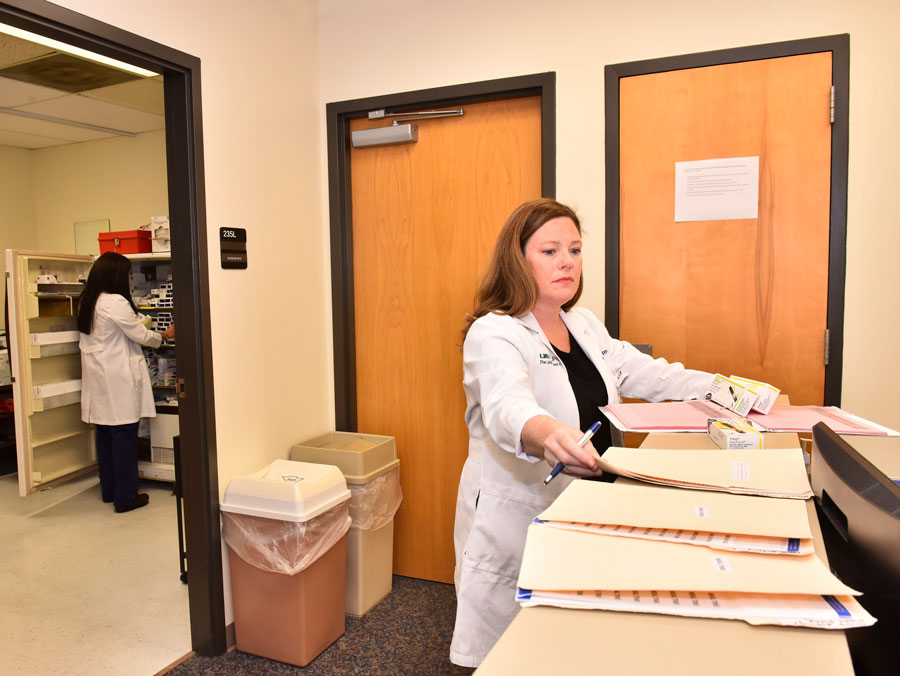 By Erica Techo
By Erica Techo
Behavioral health is an integral part of community health and patient wellbeing, and to address the needs of individuals, their families and their communities, it is important to educate and provide tools to individuals pursuing a behavioral health profession.
Through a four-year, $1.83 million grant from the Health Resources & Services Administration (HRSA), University of Alabama at Birmingham School of Nursing Associate Professor and Assistant Dean for Clinical and Community Programs Michele Talley, PhD, CRNP, ACNP-BC, FAANP, is working to improve the distribution of the behavioral health workforce through new partnerships and the expansion of existing partnerships.
The grant is funded through HRSA’s Behavioral Health Workforce Education Training (BHWET) program, which aims to increase the supply of behavioral health professionals while also increasing access to behavioral health services.
“This grant project not only addresses HRSA’s priorities of trying to improve mental health access and care and trying to increase the behavioral health workforce, but it is also improving community partnerships and working to meet the state of Alabama’s identified health needs,” Talley said. “Behavioral health problems impact one in five adults, and 1 in 25 adults admit severe problems. However, only 7 percent receive treatment. By training the next generation of behavioral health providers, we can improve access to care and the quality of care.”
As part of this grant-funded project, one master’s level and three doctoral level psychiatric mental health nurse practitioner students, four master’s level social work students and three post-doctoral psychiatry medical residents will receive training in high need and high demand clinical sites, including, Bibb Medical Center, UAB Hospital Adolescent Psychiatric Inpatient Unit, and the Nurse Family Partnership (NFP) of Central Alabama. They will receive hands-on experience and training as part of interprofessional teams, integrated behavioral health, trauma-informed care, telehealth, and resilience while they address the needs of patients across the lifespan.
This project is one step toward not only training the future behavioral health workforce, but also contributing toward workforce resilience. Through their work on interprofessional teams, students and medical residents will receive hands-on experience, training from mentors in their field and learn innovative ways to provide high-quality, efficient care and to reach more patients.
“Focusing on workforce development is important for patients and communities but is also important for current workforce. Identifying the most efficient way to provide quality care is satisfying to providers,” Talley said. “It is encouraging because the more access you can provide, the better health your patients and community can experience. This training allows students and medical residents to learn in a safe environment, to see what works well for them, what works well in a team, etc.”